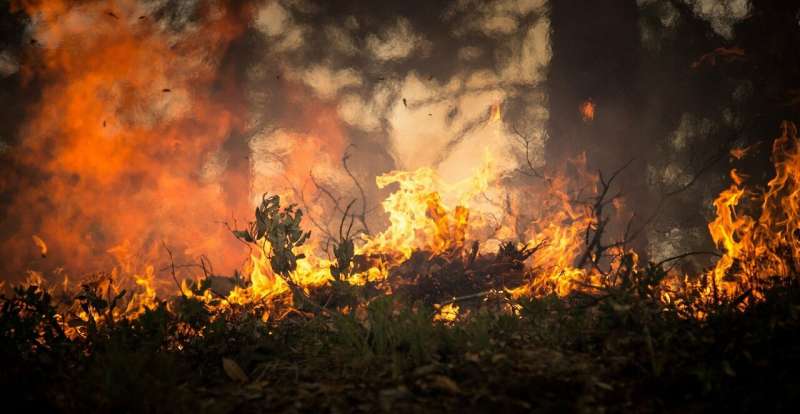March 12, 2019 report
Low elevation forests finding it more difficult to regrow after fires due to climate change

A team of researchers from the University of Montana, the University of Colorado and the U.S. Forest Service has found evidence that suggests low-elevation forests have difficult recoveries after forest fires due to climate change. In their paper published in Proceedings of the National Academy of Sciences, the group describes their study of Douglas fir and ponderosa pine trees in several parts of the western U.S. after fires and what they observed.
As the planet continues to warm, scientists study the resulting environmental impacts. In this new effort, the researchers found that regenerating young fir trees in several western states were unable to grow to fruition due to warmer and drier conditions over the past several decades.
To learn more about the possible impact of global warming on forest regeneration, the researchers studied tree rings from approximately 3,000 young trees in parts of Colorado, California and the Northern Rockies. They compared the results with climate data for the same area over the past 30 years, finding what they describe as thresholds for young Douglas fir and ponderosa pine trees—if weather conditions go over the threshold, the young trees die. For the ponderosa pine, the threshold involved humidity levels. For Douglas fir, it was soil moisture levels. The researchers report that they found that almost all of the areas they studied exceeded environmental threshold levels at least once over the past 20 years. They note that as young trees find it more difficult to grow to maturity after fires, the end result could very well be land that never re-forests—instead, it would be taken over by other types of vegetation.
The researchers also point out that their findings are rather ominous in light of the fact that forest fires in the western U.S. are happening more often and have become larger—also likely due to global warming. In 2018, for example, wildfires consumed 8.7 million acres of forest, which was 32 percent higher than the average amount of loss each year over the past decade.
More information: Kimberley T. Davis et al. Wildfires and climate change push low-elevation forests across a critical climate threshold for tree regeneration, Proceedings of the National Academy of Sciences (2019). DOI: 10.1073/pnas.1815107116
Journal information: Proceedings of the National Academy of Sciences
© 2019 Science X Network



















